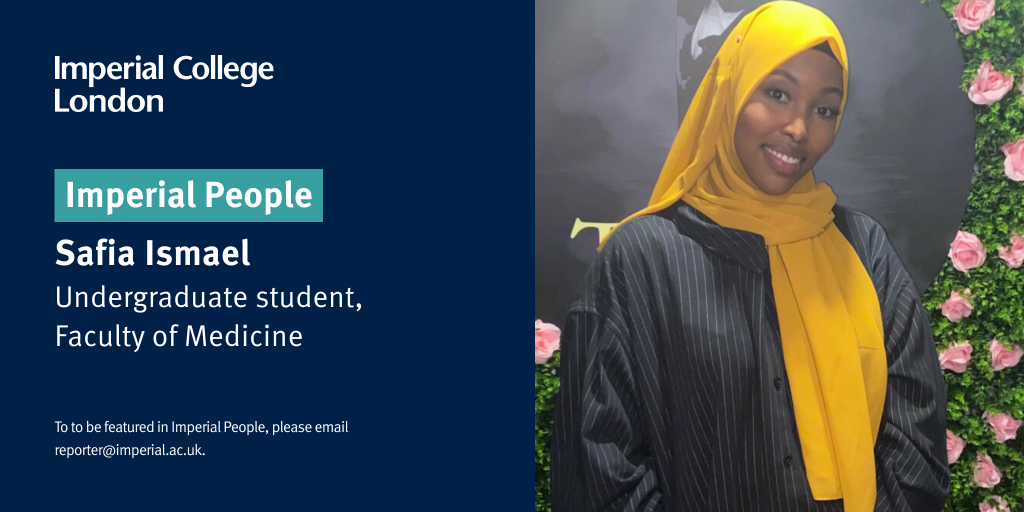
“Through the experiences of my parents, I’ve understood the detrimental effect of conflict on the East African healthcare system. I’d like to contribute in helping to rebuild this system.”
I’m currently in my third year of studying Biomedical Sciences. My educational journey has been interesting as I initially wanted to study medicine. But I realised I was underappreciating the research aspect of medicine, as the two go hand in hand. So I decided I wanted to explore the research side, and then go into graduate medicine. I would rather take a longer route in academia and see aspects I won’t see in medicine.
My interest in science and medicine stems from my heritage and parents. I am Somali and both of my parents are refugees. Through them, I’ve seen the medical system in East Africa fall apart because of war. I’d like to contribute in helping to rebuild these healthcare systems. I’ve experienced close family members die in Somaliland from preventable and treatable diseases because the system has been left damaged by conflict.
One of the people who I look up to in medicine is Edna Adan Ismail, a Somali advocate for women’s health and a former Somaliland Foreign Minister. We have a phrase in Somali, ‘naag nool’ which translates to ‘alive woman’. It’s used to describe women who are amazing at what they do. Edna Adan strived to help stabilise the healthcare system in Somaliland, I too would like to aid in the improvement and stabilisation of this healthcare system by integrating STEM and research, especially for young black girls.
It was a culture shock coming to Imperial. My cohort consists of almost 170 students, just four students are Black, and I am the only Muslim Black woman. I would like to see more honest conversations as to why diversity in areas such as research is important, particularly the value representation can add to research.
I had a challenging time attending sixth form college, and when I started at Imperial I suffered from imposter syndrome. But thanks to the compassion of my teachers and lecturers, I’ve felt very supported. They’ve boosted my morale when I’ve been struggling. Dr Kirsty Flower, Dr Laura Collopy, Dr Nitya Krishnan, Dr Anne Burke-Gaffney and Dr Mahsa Samadi have all reminded me that I’m good enough. They’ve been very understanding of the social issues and realities I face, even though they may not necessarily have experienced the same challenges.
There’s a very supportive environment at Imperial, and I’m so glad I chose this university as initially, I didn’t think it was for me. I wouldn’t choose anywhere else now! I feel privileged to be in this position.